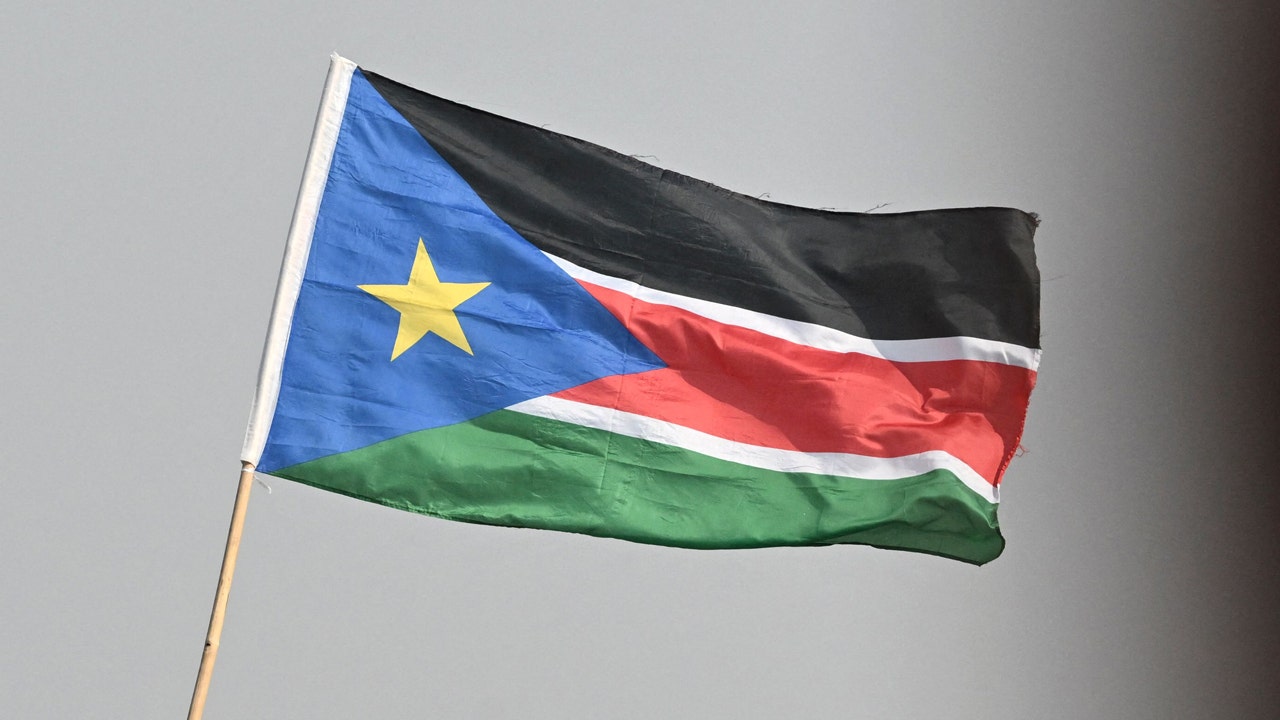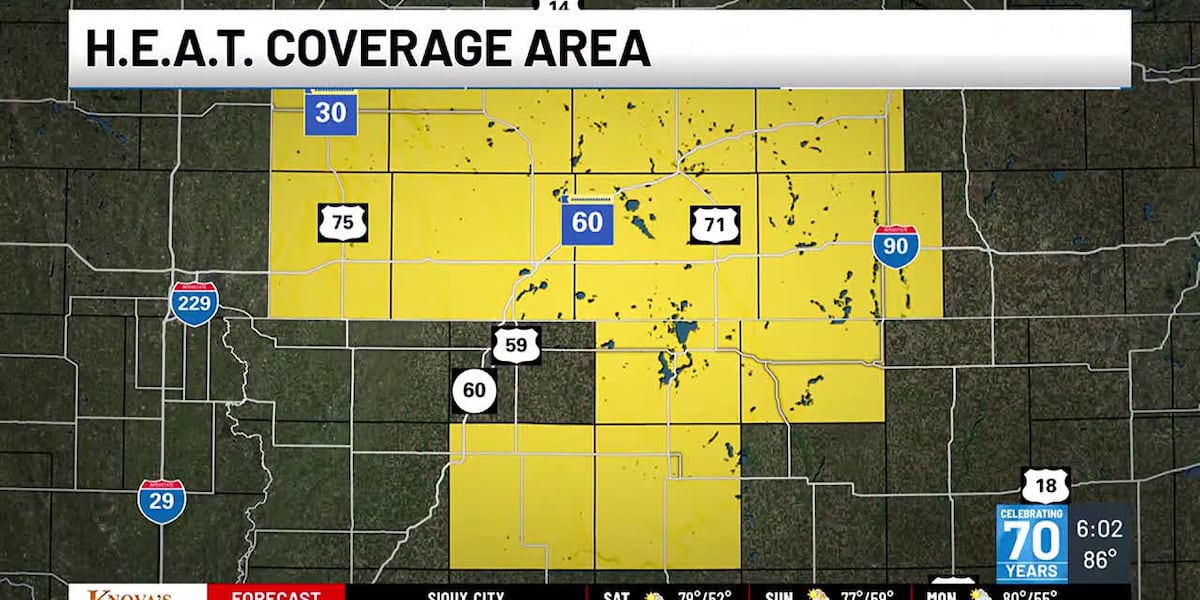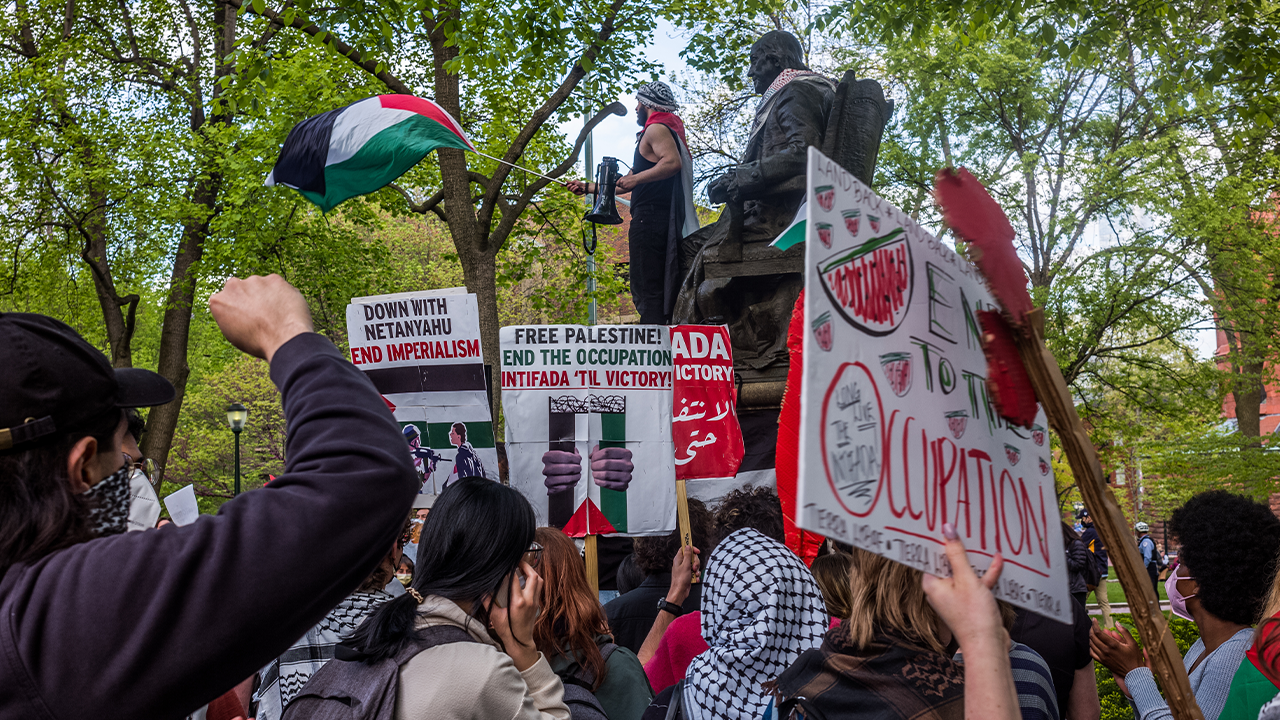World
Video: Police Remove Dozens of Protesters from Sciences Po University in Paris

new video loaded: Police Remove Dozens of Protesters from Sciences Po University in Paris
transcript
transcript
Police Remove Dozens of Protesters from Sciences Po University in Paris
Student demonstrators had been occupying a campus building in central Paris, in protest over the war in Gaza. French police cleared the building on Friday.
-
Free Palestine. Free, free Palestine.
Recent episodes in Israel-Hamas War

World
Iraq's Kurdish Regional Security Council announces arrest of top aide of former Islamic State leader

The Kurdish Regional Security Council announced in a statement on Friday that it captured a senior Islamic State figure, Socrates Khalil.
Khalil was known to be a confidant of the late Islamic State leader, Abu Bakr al-Baghdadi.
“After spending five years in Turkey, Khalil returned to Kurdistan with a forged passport and was swiftly apprehended,” the statement said.
Khalil made bombs for the Islamic State and was entrusted by al-Baghdadi with various major operations, the statement added, saying that he was instrumental in the 2014 Islamic State takeover of Mosul, and participated in many battles against Iraqi forces and the Peshmerga forces.
World
UN experts say South Sudan is close to securing a $13 billion oil-backed loan from a UAE company

U.N. experts say South Sudan is close to securing a $13 billion loan from a company in the United Arab Emirates, despite the oil-rich country’s difficulties in managing debts backed by its oil reserves.
The panel of experts said in a report to the U.N. Security Council that loan documents it has seen indicate the deal with the company, Hamad Bin Khalifa Department of Projects, would be South Sudan’s largest-ever oil-backed loan.
SOUTH SUDAN MEDIATION TALKS LAUNCHED IN KENYA WITH A HOPE OF ENDING CONFLICT
The experts, who monitor an arms embargo against South Sudan, said in the oil section of the report obtained by The Associated Press this week that “servicing this loan would likely tie up most of South Sudan’s revenue (for) many years, depending on oil prices.”
U.N. experts say South Sudan is close to securing a $13 billion loan from a company in the United Arab Emirates, despite the oil-rich country’s difficulties in managing debts backed by its oil reserves. (Photo by TIZIANA FABI/AFP via Getty Images)
Hamad Bin Khalifa Department of Projects, registered in Dubai, has no listed phone number and its website isn’t working. An email address associated with the company bounced back. The UAE Mission to the United Nations declined to comment, saying Hamad is a private company.
South Sudan gained independence from Sudan in 2011 following decades of civil war that cost million of lives, and oil is the backbone of the young nation’s economy.
Soon after independence, South Sudan fought its own civil war from 2013 to 2018, when rivals President Salva Kiir and Vice President Riek Machar signed a power-sharing agreement and formed a coalition government. South Sudan is under pressure from the United States and other nations to more quickly implement the 2018 peace deal that ended the civil war and prepare for elections.
According to the U.S. Energy Information Administration’s latest update, South Sudan produced an average of about 149,000 barrels of liquid fuels per day in 2023. The landlocked country uses Sudan’s pipelines to transfer its oil to Port Sudan for shipment to global markets in an agreement with the Sudanese government, which pockets $23 per barrel as transit fees for the oil exports.
South Sudanese Information Minister Michael Makuei Lueth told reporters in February that outside factors, including the civil war still raging in Sudan, have hurt South Sudan’s oil exports. He also said oil wells, which were water-logged by heavy floods during the past rainy season, weren’t yet fully operational.
The section on oil in the experts report said documents for the loan from the UAE company, signed between December and February by South Sudan’s minister of finance, indicate the loan is split into tranches.
According to the documents, around 70% of the loan is to be allocated to infrastructure projects, with the first payment in excess of $5 billion, the panel said. Following a three-year grace period, “the loan will be secured against the delivery of crude oil for a period of up to 17 years.”
The panel of experts raised serious questions about South Sudan’s oil-based debts.
South Sudan lost a case in the International Center for Settlement of Investment Disputes stemming from a $700 million loan it received from Qatar National Bank in 2012.
When the panel wrote its report, the tribunal had not reached a decision on how much the government would have to pay, but The Sudan Tribune reported Sunday that South Sudan has been ordered to pay more than $1 billion.
The panel of experts said it has also confirmed that the government owes $151.97 million to the Eastern and Southern African Trade and Development Bank stemming from a previous oil-related deal.
South Sudan was supposed to hold elections before February 2023, but that timetable was pushed back last August to December 2024.
In early April, South Sudan’s president warned lawmakers “not to cling to power just weeks after his former rival turned deputy proposed a further postponement of elections.
The panel of experts said would be “a significant milestone” and warned that the country’s leaders are running short of time “to ensure divergent expectations do not fuel further tensions and strife.”
The experts also noted South Sudan’s humanitarian crisis. in which an estimated 9 million of the country’s 12.5 million people need protection and humanitarian assistance, according to the U.N. The country has also seen an increase in the number of refugees fleeing the war in neighboring Sudan, further complicating humanitarian assistance to those affected by South Sudan’s internal conflict.
World
India’s biggest election prize: Can the Gandhi family survive Modi?

Amethi/Rae Bareli, India – Irfan*, a tea stall owner, is convinced that change is afoot.
“There has not been much traffic on this road from Rae Bareli to Amethi ever since the Congress lost power in 2014,” he says, referring to two towns and a party that for decades have been synonymous with one family – the Nehru-Gandhis, or as they are more commonly known, the Gandhis.
The first family of Indian politics has ruled the country for almost half of its journey since independence in 1947, with three generations of prime ministers: Jawaharlal Nehru, his daughter Indira Gandhi, and grandson Rajiv Gandhi. And through ups and downs, when the Congress has been in power and out of it, Amethi and Rae Bareli, separated by 62km (38 miles), have for the most part stood by the family. They’ve served as safe constituencies for India’s grand old party in the northern Indian state of Uttar Pradesh, which is India’s largest electoral prize: with 80 seats out of the nation’s total of 543 in the lower house of parliament.
In 2019, that tradition received a dramatic jolt when the Congress leader Rahul Gandhi – son of Rajiv – lost Amethi by 55,000 votes to Smriti Irani, a feisty minister in Prime Minister Narendra Modi’s Bharatiya Janata Party (BJP) government, which has been in power nationally since 2014. Rahul’s mother and former Congress chief, Sonia Gandhi, retained Rae Bareli for the party, the only seat it won in Uttar Pradesh as the BJP swept the nation, winning 303 seats overall.
Now, five years later, the towns are a tense microcosm of the national battle between the BJP and opposition Congress; between Modi and the Gandhis. Rahul is replacing his 77-year-old mother from Rae Bareli this time. BJP’s Irani is seeking reelection from Amethi. Each of them is expected to face tough competition from the other’s party. Amethi and Rae Bareli vote on May 20 in India’s giant election.
At stake are more than two seats: If the BJP wins Rae Bareli and retains Amethi, it will effectively have wiped out the Gandhi family and the Congress from Uttar Pradesh. Conversely, say opposition leaders, a Congress win in both seats could seed anti-BJP momentum in a state that often decides who rules nationally.
Irfan, from his vantage point of Tiloi town near Amethi and Rae Bareli, believes the political winds are blowing in the direction of the Congress. “Storm is building in both the cities, which will impact the entire state,” he says.
Yet, storms can be unpredictable – and Amethi and Rae Bareli know that.
Boost for the opposition?
In a video posted by the Congress party on social platforms, Rahul and his mother Sonia are seen leafing through old photos of the family visiting and contesting from Amethi and Rae Bareli, as they reflect on their family’s old association with the towns.
It is a decades-old bond. Feroze Gandhi, Indira’s husband and Rahul’s grandfather, won Rae Bareli in 1952 – independent India’s first election. Indira and Sonia won this seat subsequently, their stints interspersed by terms when their loyalists were nominated to contest from the town instead.
Only thrice has the Congress lost Rae Bareli. In 1977, a national opposition coalition toppled Indira’s government to come to power amid a wave of anger against the Congress over its imposition of a state of national emergency in 1975, when civil liberties were suspended and thousands of its political opponents were arrested. In 1996 and 1998, when the BJP was rising nationally and first came to power, it defeated the Congress here – though the Gandhi family was not in the contest on those occasions.
In Amethi, Indira’s elder son Feroze Gandhi lost the 1977 election but won in 1980. The Congress lost only once since then, in 1998, before Irani’s upset in 2019. Sonia and Rahul have both won from Amethi.
After his loss in 2019, many pundits had wondered whether Rahul would ever contest from the family pocket boroughs – or even from Uttar Pradesh – again. He had won from Wayanad in the southern state of Kerala in 2019 and contested from there again this time.
The Congress party insiders say he was unconvinced about contesting from a second seat this time, but was eventually swayed by pressure from Sonia, who was opposed to giving up the family’s bastions without a fight. Rahul’s sister Priyanka, who is now also a leader of Congress, decided against contesting.
With Rahul contesting from Rae Bareli, a longtime family friend Kishori Lal Sharma is competing against Irani from Amethi. It’s a scenario that could work for the opposition, say some of its leaders. In the days before the Congress decided on its candidates for these seats, Ameeque Jamei, a national spokesperson for the Samajwadi Party – the Congress’s biggest ally in Uttar Pradesh – had told Al Jazeera that if Rahul or Priyanka contested, the “opposition fight against the BJP will gain greater meaning”. He predicted that the Congress-led INDIA alliance that is challenging the BJP nationally could win up to 20 of Uttar Pradesh’s 80 seats.
That is easier said than done. Rahul faces a formidable challenger in the BJP’s Dinesh Pratap Singh, who gave Sonia a tough fight in 2019, cutting her winning margin substantially. Singh has been unsparing in his criticism of how the Gandhis treat their bloodline. The party and family rarely even mention Feroze Gandhi, Rahul’s grandfather, whose grave is 100km (60 miles) from Rae Bareli.
“A person who cannot be that of his grandfather, how can he be yours,” says Singh.

Barbershop politics
On the ground, Rahul and Priyanka are barnstorming the otherwise sleepy cities of Rae Bareli and Amethi, in their own ways.
Recently, Rahul slipped into a local barbershop to get his beard trimmed. His videos of sitting in the barbershop went viral. Priyanka divides time between the two towns, holding road shows and corner meetings.
The Congress has also brought in other heavyweight leaders to strengthen its campaigns here with their experience and political guile. At Rae Bareli’s Shalimar Guest House, Bhupesh Baghel, the former chief minister of the central state of Chhattisgarh, is marshalling supporters. “Rahul has a lot of support in Rae Bareli. So, I don’t have to do very much,” he says.
Ashok Gehlot, the former chief minister of Rajasthan, is handling the Congress campaign in Amethi against Smriti Irani, who has doubled down on her accusations that the Gandhi family neglected the town and Rae Bareli for decades despite winning from there.
The Congress is counting on the support of two key voting blocs. Muslims constitute 22 percent of Uttar Pradesh’s population. A Muslim leader from Amethi, Muhammad Alam, said many from his community could have considered voting for the BJP, but Modi’s recent attacks – including suggestions that the Congress would take Hindu wealth and give it to Muslims – had changed their minds.
Gautam Rane, a Dalit activist in Uttar Pradesh’s capital, Lucknow, says sections of the community, which sits at the bottom of India’s complex caste hierarchy, are also shifting towards the Congress. The community has traditionally backed the regional Bahujan Samaj Party in the state. The Congress has used stray comments by some BJP leaders to suggest that the party wants to change the constitution and take away caste-based affirmative action benefits from the Dalits – a charge that the BJP has denied.
“This is Rahul Gandhi’s elections,” Rane says. “No one [else] matters.”
* Name changed to protect identity
-

 Politics1 week ago
Politics1 week agoRFK Jr said a worm ate part of his brain and died in his head
-

 World1 week ago
World1 week agoPentagon chief confirms US pause on weapons shipment to Israel
-

 World1 week ago
World1 week agoConvicted MEP's expense claims must be published: EU court
-

 News1 week ago
News1 week agoStudents and civil rights groups blast police response to campus protests
-

 Politics1 week ago
Politics1 week agoCalifornia Gov Gavin Newsom roasted over video promoting state's ‘record’ tourism: ‘Smoke and mirrors’
-

 Politics1 week ago
Politics1 week agoOhio AG defends letter warning 'woke' masked anti-Israel protesters they face prison time: 'We have a society'
-

 News1 week ago
News1 week agoNine Things We Learned From TikTok’s Lawsuit Against The US Government
-

 Politics1 week ago
Politics1 week agoBiden’s decision to pull Israel weapons shipment kept quiet until after Holocaust remembrance address: report



















